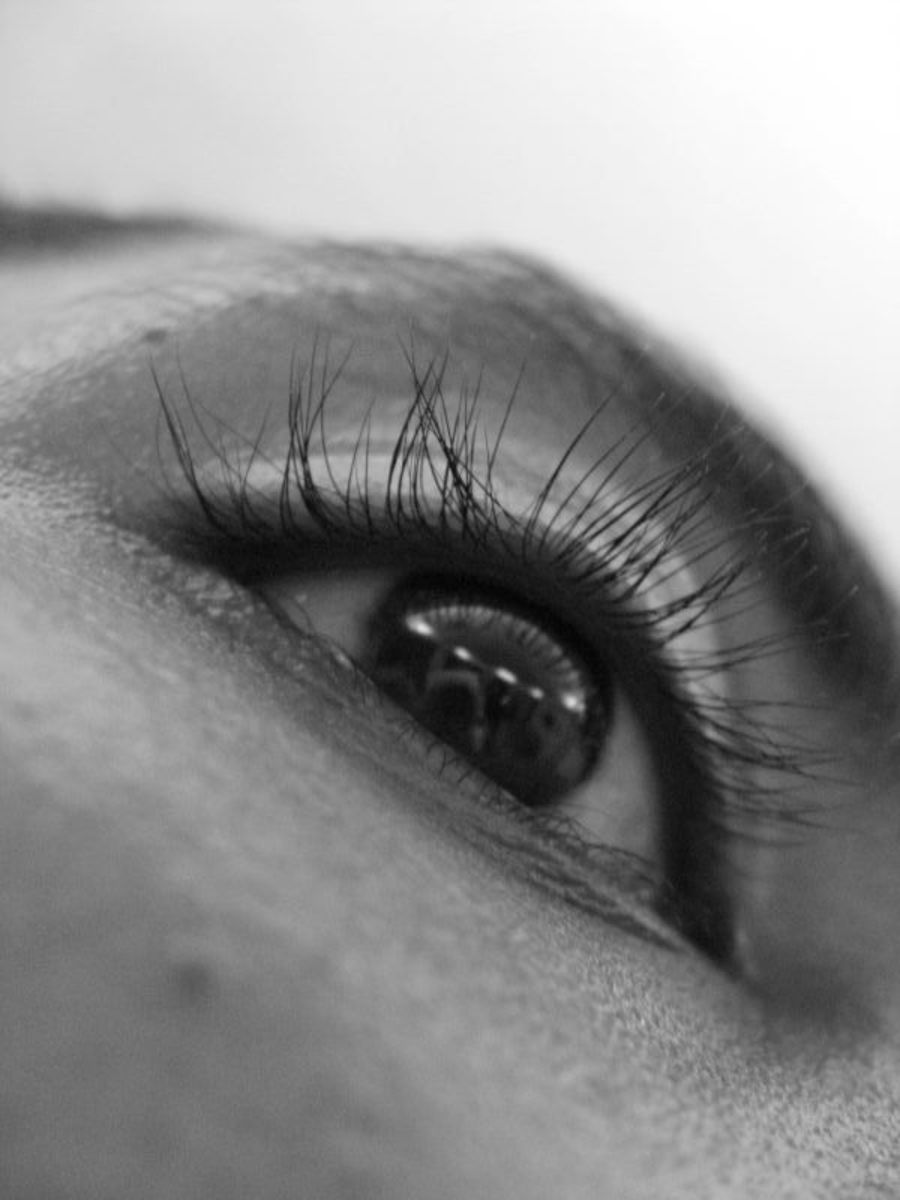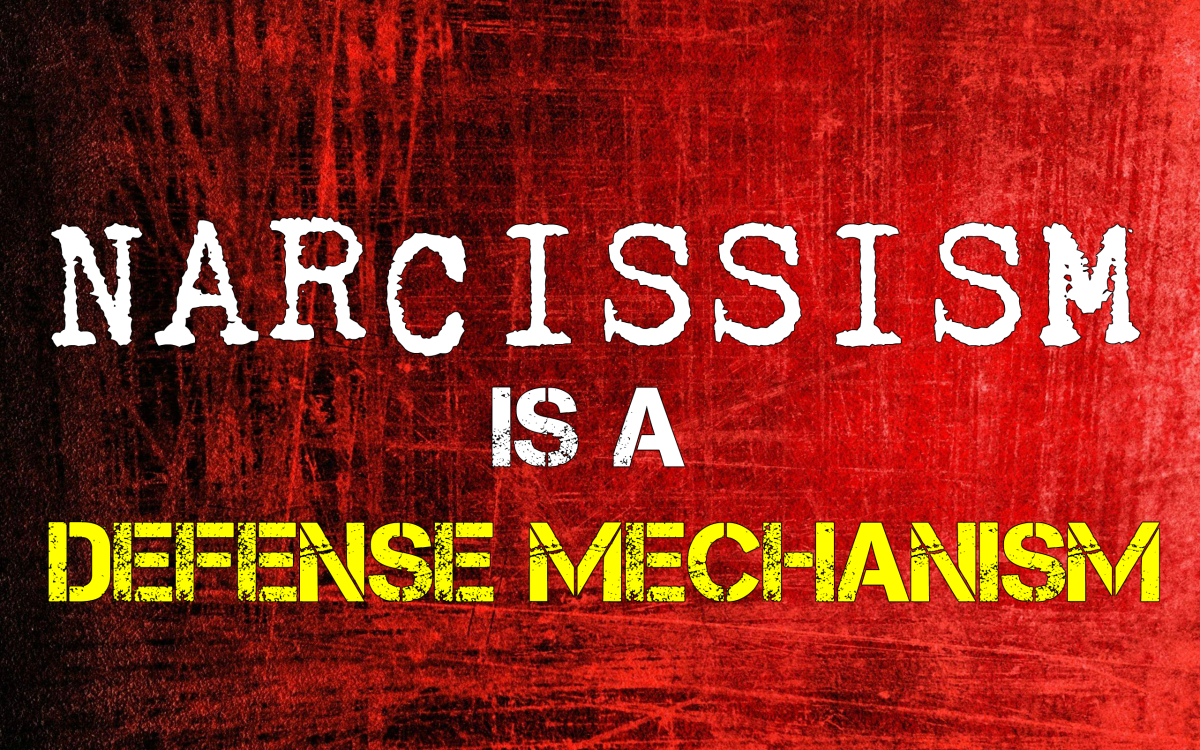The Psychology Query: Inagural Edition - Can a Narcissist Have Low Self Esteem?

I routinely receive a number of questions on other sites that I write for, some of which are unique and many which are repeated. I thought to perhaps take a page (or a letter) from Bill Holland aka BillyBuc’s book (or letter from his mailbag and answer them through a Hub or two. I can’t promise to be nearly as prolific as BillyBuc, but let’s start with one article and see just how far we get. Please join me for answers to questions about psychology in all its various forms and topics on Psychology Query, a new series that will appear every so often as questions and time dictates. (Hey Bill, would that be dictate for questions or dictates for time?) I also intend to include personal reflections, actual case presentations of patients I have seen and book reviews to provide additional reading for those searching for more information or resources.
Hopefully, these answers to random questions will answer something about a topic you have been wanting to learn about. If not and you have other questions, feel free to list them in the comments section or message me through HubPages and I will do my best to answer you as quickly as possible in a future article. While initially I will not include any names (even first names) or other identifying information, in future I may decide to address my answer to you specifically using just a first name. (Please indicate if you would prefer I don’t use even your first name when answering online). I will do my best to include relevant research to back my answers and when I am responding based on my opinion I will tell you so.
Although I don’t intend to create articles based on a central theme there may be times I decide to do so if something seems to be on a lot of reader’s minds. Depending on the length of what I have to say in my answer I may answer a single question in a post or I may include several shorter answers to be able to cover more topics when possible. For some strange reason, narcissism seems to be the topic of many questions I have been asked recently. My initial posts will answer several questions about Narcissism and Narcissist Personality Disorder. The first of these will answer a single questions so as to have the space to include some important background information. So let’s begin there, shall we?
Welcome to the Psychology Query. Come and sit a spell, won’t you?
A Word About My Vewpoint on Mental Health and Coping
Just a quick caveat before we get started. Each of us has a way of explaining and viewing the world. This includes how we view those with what are considered mental health disorders. I often see the world through a stress and coping lens or a stress diathesis lens as well as a Biopsychosocial lens.
The last two are mouthfuls but to simplify them basically mean I look at the world of mental health in terms of there being certain predispositions to what may be developed and what the person comes into contact with in their lifetime will determine what actually does develop. In other words, we each are born with certain physiological predispositions to develop certain types of disorders. Think of these as risk factors.
Some of these risk factors are genetic, temperamental and/or neurological in nature. For example, those who are born with the temperamental quality of having a high activity level may be predisposed to developing anxiety, a disorder that is characterized by a state of high arousal. Those born with a low activity level may be predisposed to developing depression a disorder characterized by a low arousal level. That doesn’t mean that either of these children will go on to develop either. (There is also an almost limitless number of additional factors that go into the development of either of these disorders but for explanation’s sake I am trying to keep it simple).
A child raised without much stress who learns to cope with life’s difficulties adaptively, and who develops healthy thought patterns, may go through life without developing a serious problem with either of these disorders. A child however, who is never taught to cope with life stress either directly or through modeling by important adults in the child’s life, is more likely to develop a disorder to which they are predisposed. As previously stated there are countless numbers of factors which go into whether an individual will actually develop a mental disorder or not.
I mention coping because learning to cope with both negative and positive life events is important for establishing resiliency to the effects these events may have on the individual’s mental health. At the same time, coping is often, it seems to me, the reason many disorders including many of the personality disorders develop in the first place. Narcissism is one of these.
As I explain in depth below, narcissism often develops as a means of coping with low self-esteem as the individual, for one reason or another, cannot cope with how they see themselves. Narcissism is one way a person can completely repress the awareness of their negative self-perceptions and make themselves feel like they are extremely worthy of admiration and attention due to their superiority. My perspective usually focuses, at least in part, in how mental disorders may serve a coping function for the individual.
Disorders develop for a reason. While the reason or purpose may not be functional at present, it was functional at one time, allowing the person to somehow deal with something in their life. When it comes to be viewed as a disorder it is no longer adaptive and needs to be replaced with something that is adaptive. But for those of you who are budding therapist or already established as mental health providers, it is important to remember not to simply focus on getting rid of the disorder without first having something else to put into place. If you can see the disorder as it functions from a coping perspective, you don’t want to take away the persons primary coping mechanism before replacing it with something else the person can rely on.
I am explaining all this, in an effort to help you understand what type of point of view I am likely to take, and see why I present a case, disorder or answer the way that I do. I hope this helps you better comprehend the answers I provide. All of these questions could be answered differently. I answer them based on my knowledge as well as a stress and coping perspective.
I now return you to your regularly scheduled answers. On with the show.
Answers to Reader's Questions

Can a person have low self-esteem and still be a narcissist?
This is a great question since most people would probably assume those with narcissism have an overabundance of self-esteem. According to the research however, narcissism is actually a function of having low self-esteem but not being able to cope with these negative self-perceptions. Therefore the narcissist creates a series of beliefs about themselves to protect against becoming aware of their actual self-evaluation.
In addition to perceptions of elevated self-worth and superiority, narcissistic individuals tend to feel excessively tormented by potential threats to their self-image. As a response to this torment, they engage in maladaptive strategies to handle these threats such as violence and physical and verbal aggression (e.g. Pincus et al., 2009). Studies have shown that those who display pathological narcissism have low self-esteem, a chronically unstable and antisocial life-style and a high degree of aggression towards others (e.g. Falkenbach, Howe & Falki, 2013).
Different people have different ways of coping with low self -esteem which is determined by an interaction between physiological predispositions (e.g. temperament) and environmental factors (e.g. parental modeling of coping behavior). Thus, how narcissistic qualities and self esteem develop and interact is a complex process that cannot easily be summed up as it is different for each individuals.
For those who develop Narcissistic Personality Disorder, their experience of low self-esteem is so traumatic, they simply can’t cope with the implications of and affect associated with the way they view themselves. Their way of surviving their weak self-esteem is to repress it beneath a host of other belief some of which may be accurate or based on something accurate and many that are not. These beliefs involve being better than everyone around them both in internal and inherent characteristics as well as in their external behaviors and achievements.
* For further information on Narcissistic Personality Disorderr and related content please see this article about the ability of those with NPD to express empathy.
From One of the Leading Psychology Specialists on Narcissism
Book Review
Becoming the Narcissist’s Nightmare: How to Devalue and Discard the Narcissist While Supplying Yourself
by Shahida Arabi

The title of this book says it all. While there is a significant amount of scientific, clinical research on the specifics of Narcissistic Personality Disorder (NPD), less has been published on the experiences of the victims who are in toxic relationships with narcissistic partners. Individuals with this disorder engage in chronic abuse and manipulation of others including their partners in order to bolster vulnerable self esteem.
Yet comprehensive knowledge of what narcissistic abuse entails is not taught in any psychology class or found in any diagnostic manual. Since pathological narcissists are unlikely to seek treatment for their disorder, it is difficult to determine what individual issues underlie a particular narcissist’s behavior. It can also be unclear as to why they use specific manipulative tactics which differ not only from those of other types of abusers but also from one person with NPD to another.
As narcissists are more covert and underhanded when manipulating others compared to other types of abusers and split those they interact with, often the victim is not believed when they seek support. This book provides an excellent presentation of likely pathways that lead to our remaining in toxic relationships with a narcissistic partner or significant other. The author explores the answers to a number of troubling questions including how we come to develop an addiction to our narcissistic abusers. The book also provides enlightening information on how we enable narcissistic partners by either believing every one of their assertions even when they contradict each other or by not fighting back when we are the victim. Additional information Included is material on the biochemical bonds and trauma bonds that form which are unlike the bonds of any other relationship we experience.
Readers will learn a number of specific signs which will make a narcissist's behavior and covert manipulation tactics transparent, including subtle signals many victims fail to perceive in the early stages of dating a narcissist. Some of the important lessons in this book include:
- The purpose and goals behind narcissistic abuse and specific, detailed techniques to resist a narcissist's manipulation
- The reasons why victims remain with a narcissistic partner
- The way in which our own brain chemistry creates cravings for the constant chaos of the narcissist’s abusive cycle although it causes us to suffer
- Methods that can help us disconnect and heal from our addiction to the narcissist
- Strategies we can use to rewrite the narratives that abusers have written for us and about us so we can reconnect with our real inner selves allowing us to redefine our purpose devoid of the narcissist’s influence and needs
Anyone who is involved in a relationship with a narcissist or who knows someone who is, will greatly benefit from this book. It help us not only understand why the narcissist behaves the way that they do allowing us to feel a degree of empathy for them, but also shows us how to create a life that is free of the manipulation, grief and pain associated with narcissistic abuse.
References
Falkenbach, D. M., Howe, J. R., & Falki, M. (2013). Using self-esteem to disaggregate psychopathy, narcissism, and aggression. Personality and Individual Differences, 54(7), 815-820.
Marcus, D. K., Fulton, J. J., & Edens, J. F. (2013). The two-factor model of psychopathic personality: Evidence from the Psychopathic Personality Inventory. Personality Disorders: Theory, Research, and Treatment, 4(1), 67.
Pincus, A. L., Ansell, E. B., Pimentel, C. A., Cain, N. M., Wright, A. G., & Levy, K. N. (2009). Initial construction and validation of the Pathological Narcissism Inventory. Psychological assessment, 21(3), 365.
Vater, A., Ritter, K., Schröder-Abé, M., Schütz, A., Lammers, C. H., Bosson, J. K., & Roepke, S. (2013). When grandiosity and vulnerability collide: Implicit and explicit self-esteem in patients with narcissistic personality disorder. Journal of Behavior Therapy and Experimental Psychiatry, 44(1), 37-47.
© 2017 Natalie Frank









